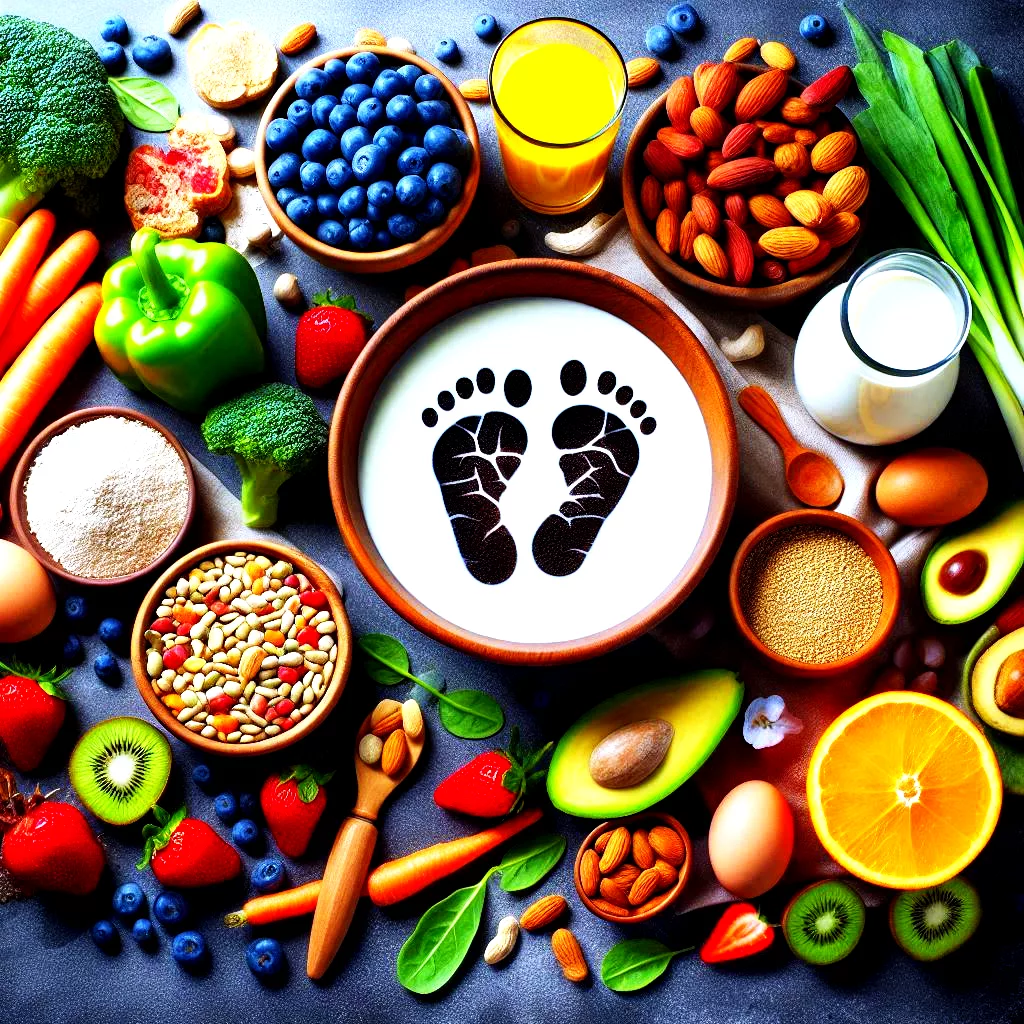Introduction
Bringing a new life into the world comes with endless joys and a new set of responsibilities, one of the most important being your baby’s nutrition. As a new parent, my wife and I quickly realized that what she eats doesn’t just impact her; it directly affects our baby. Breastfeeding is more than just a bonding moment—it’s a nutritional link between mother and child. Ensuring that her diet was balanced became crucial for our baby’s development and well-being. This guide will provide the best breastfeeding diet for new mothers.
Breast milk is an incredible, nutrient-dense fluid designed to meet your baby’s needs. While your body adjusts to produce the optimal nourishment, the quality of your breast milk can be influenced by your diet. This makes understanding nutrition while breastfeeding not just important—but essential.

Table of Contents
The Importance of Nutrition During Breastfeeding
Breast milk is packed with vitamins, minerals, proteins, and fats that are critical for your baby’s growth, cognitive development, and immune system. But did you know that your baby’s first six months are entirely reliant on the nutrients in your breast milk?
The good news is your body naturally adjusts to meet your baby’s needs. However, consuming a nutritious and well-rounded diet ensures that you’re not depleting your own resources. From calcium to protein, and essential vitamins like A, D, and B12, nourishing yourself is vital for both you and your child.
Eating with intent is more than just about producing an abundant milk supply. It also provides peace of mind, knowing that you’re fueling both your body and your baby’s development.
Superfoods: The Building Blocks of Breastfeeding Nutrition
To provide the best nutrients for your baby, it’s essential to incorporate superfoods into your daily diet. Here are some of the most beneficial foods you should focus on:
1. Leafy Greens: Spinach, kale, and other dark greens are rich in calcium and iron. These nutrients are essential for both bone development and maintaining high-quality breast milk.
2. Berries and Oranges: Fruits like berries and oranges are rich in antioxidants and vitamin C, which supports your baby’s immune system and helps your body absorb iron.
3. Whole Grains: Brown rice, oatmeal, and quinoa provide long-lasting energy thanks to complex carbohydrates and fiber. Quinoa, a complete protein, contains all nine essential amino acids, helping with your own tissue repair and overall energy levels.
4. Lean Proteins: Chicken, turkey, and fish are fantastic sources of protein, which is crucial for your baby’s growth. Salmon is particularly beneficial due to its omega-3 fatty acids, which contribute to brain and eye development.
5. Healthy Snacks: Consider nutrient-rich snacks like almond butter on whole-grain toast, Greek yogurt with honey, or trail mixes with nuts and seeds. These options will provide energy without the empty calories.
Foods to Avoid or Limit While Breastfeeding
Though breastfeeding gives your baby tailored nutrition, certain foods and substances can interfere with this process. Understanding which foods to avoid or limit is crucial for your baby’s health.
1. Caffeine: While you don’t need to eliminate caffeine, limiting your intake is essential. High amounts can affect your baby’s sleep and cause irritability.
2. Alcohol: Alcohol should be consumed sparingly and with care. Ideally, wait at least two hours before breastfeeding if you’ve had a drink, giving your body time to metabolize the alcohol.
3. Certain Allergenic Foods: Some babies may have sensitivities to foods like cow’s milk, soy, nuts, and eggs. Monitor your baby’s reactions after feedings and adjust your diet accordingly.
4. Artificial Sweeteners and Processed Foods: These don’t offer much nutritional value and may cause digestive discomfort for your baby. It’s always best to prioritize whole foods rich in vitamins and minerals.
5. Spicy or Gassy Foods: Foods that can cause gas in you may have the same effect on your baby. Keep an eye on any signs of fussiness after consuming beans, onions, or spicy meals.
Hydration: The Often Overlooked Key to Breastfeeding Success
Water plays a crucial role in breast milk production, so staying hydrated is essential. Aim to drink at least eight glasses of water a day, and keep a water bottle nearby when feeding your baby. Milk, natural juices, and herbal teas can also help you stay hydrated.
Monitor your fluid intake using apps or journals to ensure you’re getting enough to support your milk supply. If you feel thirsty, it’s your body’s way of telling you it needs more fluids.
Practical Tips for a Balanced Breastfeeding Diet
Every mother’s body is different, and what works for one person might not work for another. It’s essential to listen to your body and adjust as needed. Here are a few practical tips for maintaining a healthy diet:
1. Plan Your Meals: Meal planning can help ensure that you’re consistently getting the right nutrients. Prepping healthy snacks like chopped fruits, nuts, and yogurt makes it easier to avoid less nutritious convenience foods.
2. Seek Professional Guidance: If you’re uncertain about your diet, don’t hesitate to consult a registered dietitian. A healthcare professional specializing in maternal nutrition can offer personalized advice tailored to your specific needs.
3. Keep Track of Your Baby’s Reactions: Watch how your baby responds after feedings. If you notice patterns of fussiness or gas, consider adjusting your diet and monitor the changes.
4. Cut Yourself Some Slack: Breastfeeding is demanding, and it’s easy to feel overwhelmed. Celebrate your efforts, and remember that every balanced meal you eat is a step toward giving your baby the best possible start.
FAQs About Breastfeeding Nutrition
1. How many calories should I be consuming while breastfeeding?
Breastfeeding mothers typically need around 500 extra calories per day. Focus on nutrient-dense foods like whole grains, proteins, and healthy fats to meet this requirement.
2. Can I lose weight while breastfeeding?
Many mothers find they lose weight naturally while breastfeeding due to the increased calorie demand. However, it’s essential to focus on nourishing your body first and foremost rather than rapid weight loss.
3. Do I need to take supplements?
While it’s best to get your nutrients from whole foods, some mothers may need supplements for vitamins like D or B12. Consult your healthcare provider before introducing supplements.
4. What should I do if I suspect my baby has food sensitivities?
If your baby shows signs of discomfort after feedings, try eliminating certain foods from your diet for a week to see if symptoms improve. Always consult a pediatrician if you’re unsure.
Conclusion: Nourishing Yourself, Nourishing Your Baby
Breastfeeding is an incredible way to provide your baby with the best start in life, but it also means that your nutrition directly impacts their health and development. By incorporating superfoods, staying hydrated, and avoiding certain foods, you can ensure that your breast milk is as nutrient-dense as possible.
Remember that there’s no perfect diet—what matters is balance, variety, and staying attuned to your body and baby’s needs. With careful consideration of your dietary choices, you’ll be better equipped to navigate this beautiful, challenging, and rewarding stage of motherhood.
Additional Resources
If you haven’t already, be sure to check out our YouTube Channel for other great content! We have some must reads here at New-Parents as well, such as, Baby Shower Invitations And Stationery: Exclusive Guide or Top 25 Best Baby Books For New Parents.
